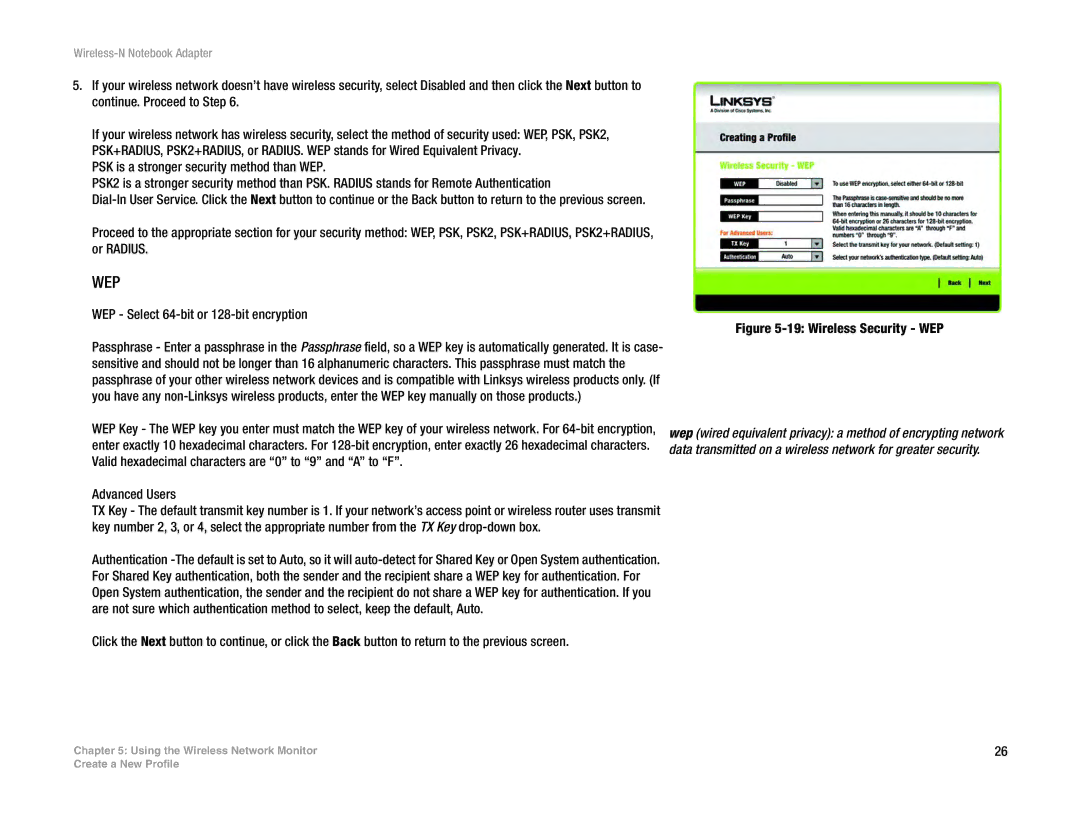
Wireless-N Notebook Adapter
5.If your wireless network doesn’t have wireless security, select Disabled and then click the Next button to continue. Proceed to Step 6.
If your wireless network has wireless security, select the method of security used: WEP, PSK, PSK2, PSK+RADIUS, PSK2+RADIUS, or RADIUS. WEP stands for Wired Equivalent Privacy.
PSK is a stronger security method than WEP.
PSK2 is a stronger security method than PSK. RADIUS stands for Remote Authentication
Proceed to the appropriate section for your security method: WEP, PSK, PSK2, PSK+RADIUS, PSK2+RADIUS, or RADIUS.
WEP
WEP - Select 64-bit or 128-bit encryption
Figure 5-19: Wireless Security - WEP
Passphrase - Enter a passphrase in the Passphrase field, so a WEP key is automatically generated. It is case- sensitive and should not be longer than 16 alphanumeric characters. This passphrase must match the passphrase of your other wireless network devices and is compatible with Linksys wireless products only. (If you have any
WEP Key - The WEP key you enter must match the WEP key of your wireless network. For
Advanced Users
TX Key - The default transmit key number is 1. If your network’s access point or wireless router uses transmit key number 2, 3, or 4, select the appropriate number from the TX Key
Authentication
Click the Next button to continue, or click the Back button to return to the previous screen.
Chapter 5: Using the Wireless Network Monitor
wep (wired equivalent privacy): a method of encrypting network data transmitted on a wireless network for greater security.
26
Create a New Profile
